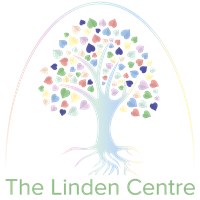KS1 and KS2: Throughout the primary phase, number is taught creatively, encompassing place value, addition, subtraction, multiplication, division and fractions. Pupils progressively develop their skills and use of methods, in correlation with the school’s Calculation policy. These processes are utilised in conjunction with the ongoing development of pupil’s reasoning skills. Pupils are provided with regular opportunities to develop their problem solving skills, enabling pupils to develop a strong understanding of mathematics in preparation for KS3.
KS3: The order in which topics are taught in mathematics are designed to create a spiral learning approach to the knowledge and skills students need in order to gain a solid foundation in which we subsequently build on throughout the respective course. KS3: The curriculum aims to build on the knowledge and processes learnt at of Key stage 2 with a strong focus on algebra, number, statistics and geometry which are underpinned by our national curriculum. An overarching theme towards mathematics during Y7 to is encourage and develop problem solving and being able to discover ideas and connections for themselves.
In Year 7 fundamental ideas are that are to key being successful in mathematics are established or consolidated early. These include working with different types of numbers such as fractions, decimals and percentages through to algebra. There is a strong emphasis on students developing their ability to use algebra including the basic premise and techniques to generalising patterns. This skill is important to harness early as success later on in year 7 relies on it heavily where students have to set up and solve equations or have to prove statements. There is an increased emphasis on working collaboratively and students are actively encouraged to discuss mathematical concepts.
In year 8 and 9, there is a stronger emphasis on learning more core content with many new concepts and techniques introduced in readiness for developing these ideas further at GCSE. Topics introduced in year 7 continue to be developed as well for example, students are unable to master the skill of solving simultaneous equations in year 8 and 9 without knowing the strategies for solving single linear equations that they learn in year 7.
KS4: At KS4 we build upon many of the concepts and methods that were introduced at KS3. A fundamental skill our students learn at KS4 is the ability to make links between topics, and to be able to solve multi layered problems. Opportunities to challenge their problem-solving ability are populated throughout the course but becoming more frequent towards to the latter end as their knowledge of the content becomes more secure. The content is covered in a way that has ‘natural flow’ while still providing students variety. For example, in the topic sequences, students build on their learning of linear sequences from KS3 and extend this to other more complex sequences such as quadratic, geometric and Fibonacci at KS4. Another topic introduced at KS3 is quadratic expressions where students are required to expand double brackets and factorise whereas at KS4 we develop this idea to include solving quadratic equations and its significance relating to graphs and real-world applications such as kinematics. The curriculum has been sequenced in such a way that the more complex and high-grade topics such as equations of circles and tangents or transformations of graphs are covered towards the latter part of the course to ensure that they have all the pre-requisite skills such as applying Pythagoras’ theorem and trigonometry have been firmly established.
